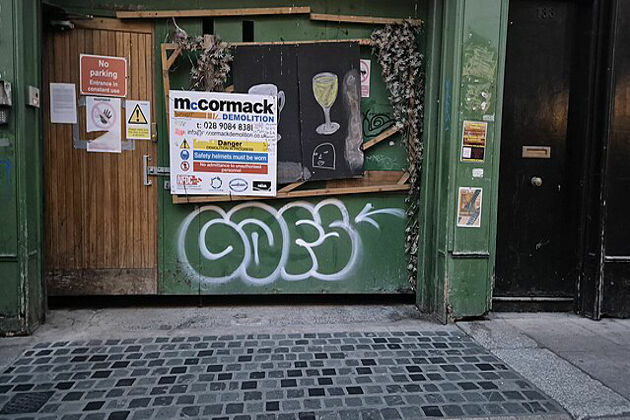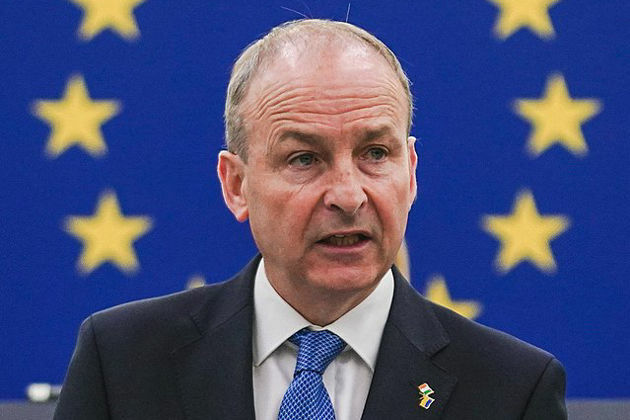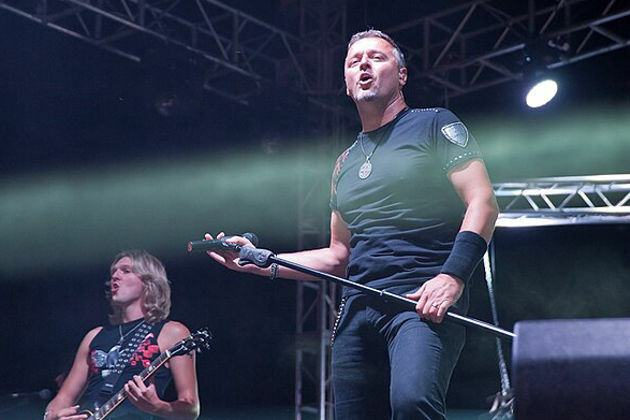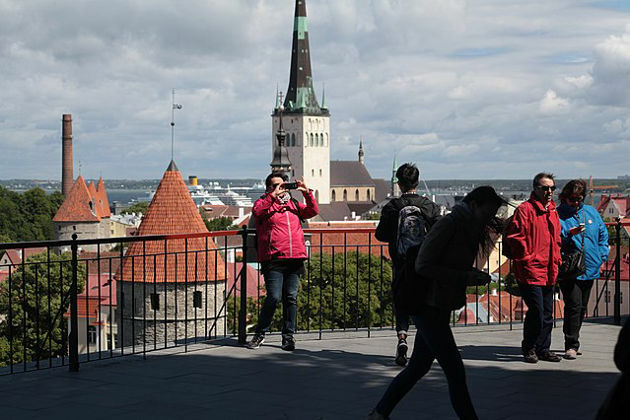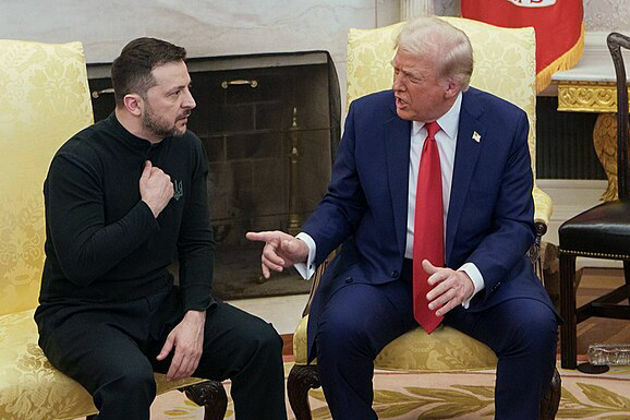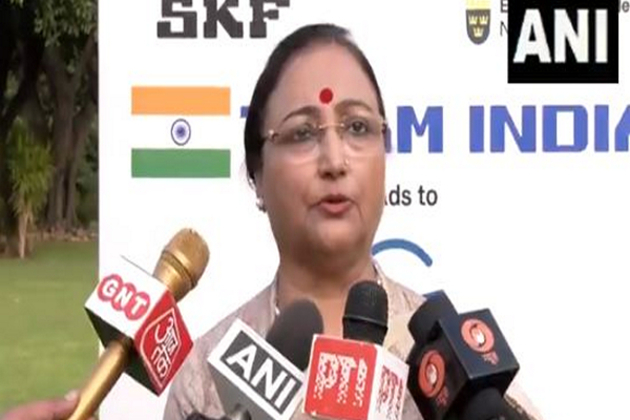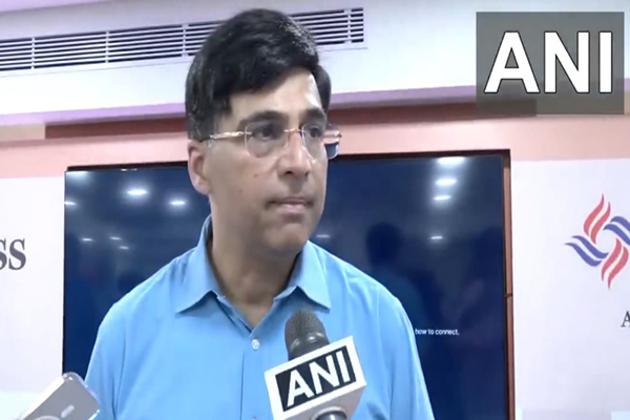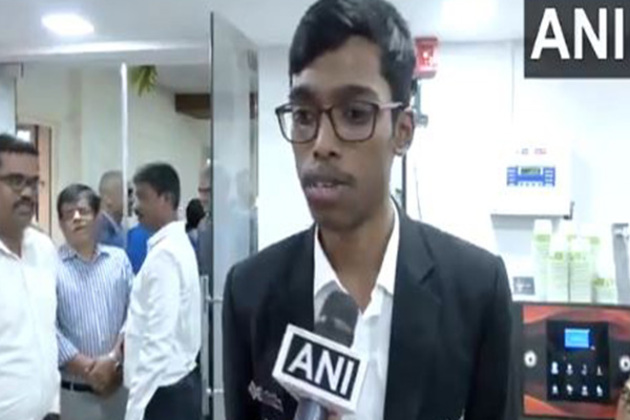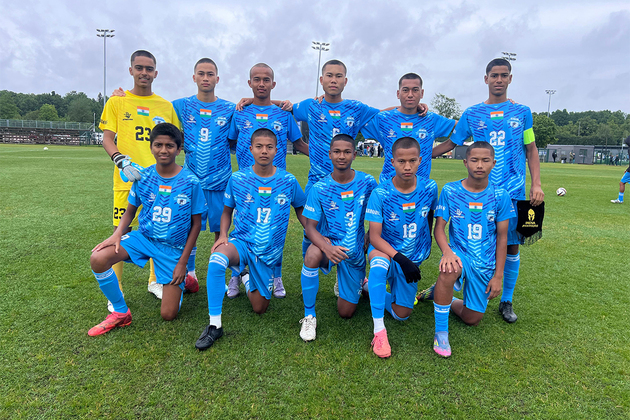The peace deal that put women first: What Colombia taught the world
UN Women
11 Jul 2025, 03:24 GMT+10
The role of women in Colombia’s peace process
Until 2016, war was all that generations of Colombians knew, as the internal armed conflict stretched back an interminable 52 years. Some women joined insurgent forces. Many more, especially in marginalized rural areas, lived with constant insecurity and fear. They suffered sexual violence and the deaths of family members. Some lost their land and livelihoods.
And they persevered. If peace felt like an impossibility, women’s movements never gave up. In the 2010s, when a peace process finally began to coalesce, women were ready to act. With UN Women’s support, they mobilized across the country to gain a place and a voice at the peace table. As talks moved forward, they demanded equal representation and brought forward first-hand testimonies about the violations of their rights and the devastation in their communities.
When peace was signed on paper, women demanded – and got – provisions in the peace agreement to safeguard and advance women’s rights, and to make sure that what had happened to them wouldn’t happen again.
By the time a formal peace agreement was struck in 2016, women made up about 20 per cent of the negotiating team from the national government and 43 per cent of delegates from the Revolutionary Armed Forces of Colombia (FARC), the highest ever share in modern history. The global average for women delegates is just 5 per cent, despite evidence that women’s participation in peace processes increases the likelihood that an agreement will last.
In Colombia, women’s significant presence in the negotiations and visible public advocacy made the case that peace would depend on gender equality and women’s rights and access to justice.
“We, the women of Colombia ensured that the peace agreement’s wording and definitions included both men and women,” recalls Janneth Lozano, former coordinator of the Network of Popular Education among Women from Latin American and the Caribbean (REPEM). “The agreement recognizes how war impacts women’s lives differently. It recognizes how we have been victims of systematic exclusion [and] that we have been the victims of the worst acts of violence and the deepest poverty.”
Five facts you should know about Colombia’s peace process and women’s roles
The world’s first peace accord to fully integrate a gender perspective – with over 100 commitments to women’s rights.Women helped write the agreement – on both sides of the conflict. Colombia’s peace talks were historic for including women as negotiators for both the Government (20 per cent) and FARC (43 per cent).No amnesty for sexual violence – The agreement treats conflict-related sexual violence as a war crime that cannot be amnestied.Women leading justice – Colombia’s post-conflict justice system includes majority women judges and a gender commission to ensure accountability.Peace in action today – Over 1,500 women helped shape Colombia’s 10-year national plan to put gender equality at the heart of lasting peace.-
Cantadora singers in Tumaco rehearse on a rooftop. They are part of a network of singers who use traditional Afro-Colombian music to preserve their culture and promote peace. Photo: UN Women/Ryan Brown Mila Rodriguez, 18, plays the marimba, an instrument used in traditional Afro-Colombian music. "When I listen to a drum, I feel like it’s calling my name. This music is in my veins." Photo: UN Women/Ryan Brown Dama Verde is an economic project in Pondores (Colombia) led by women former guerrilla fighters in process of reintegration. They grow aromatic plants among other crops to sustain their families and contribute to the entire community, as they reintegrate into civilian life after the Peace Agreement with the Colombian Government was signed in 2016. This economic project is supported by UN Women. Photo: UN Women/Pedro Pío Cielo Gomez and her family got their land back as part of the land restitution process initiated by the Government of Colombia. Through a UN Women project implemented by Corporation for the Social, technological and economic development of Colombia (CORPDESARROLLO), funded by the Government of Sweden, Cielo learned about her right to land, developed leadership and business skills. Photo: UN Women/Ryan Brown Cielo Gomez with land restitution paperwork received during the process initiated by the Government of Colombia. “There were three lots of land, and now I own one of them, and the other two are under my husband’s name. We grow coffee in all three lots. Both of us are now land owners and that’s economic autonomy,” says a proud Cielo. Since then, she has taken a loan from the bank and bought another piece of land. Photo: UN Women/Ryan Brown Over 1500 women helped shape Colombia’s national action plan on women peace and security. Photo: UN Women/Juan Camilo Arias A group of about 20 women holding banners calling for inclusive peace in Colombia. Over 1500 women helped shape Colombia’s national action plan on women peace and security. Photo: UN Women/Juan Camilo Arias
How do women build peace?
One of the most recent milestones in Colombia’s peace process was the 2024 adoption of a national action plan on women, peace and security, in line with a series of UN Security Council resolutions. It builds on a solid foundation: UN Women’s sustained support for over 120 women-led organizations continuously advocating for women’s rights in actions under the 2016 accord. The Colombian women’s movement is pushing for changes that make a real and lasting difference in women’s everyday lives.
Reintegrating ex-combatants: In the aftermath of the peace agreement, UN Women began supporting nearly 3,000 former women combatants in 11 regions to lay down arms and rejoin their families and communities. They have taken up new roles as citizens, students, entrepreneurs, mothers, and political leaders.
Restoring land rights: With a new national law to restore illegally seized land to its rightful owners, UN Women has helped women across the country learn about their rights, gain formal ownership documents, and acquire business and agricultural skills. As Nelly Velandia, a rural leader from central-eastern Colombia, says, “For us, peace is defending the land, food sovereignty, and women's rights. That is what peacebuilding is about.”
Healing and recovery: Continuous psychosocial support assists individuals and communities to recover from trauma, seek justice, and manage continued insecurity in many communities. Along the Pacific Coast, one unique initiative is the UN Women-assisted Cantadora network of singers. It has brought women of all ages together to perform traditional Afro-Colombian music, preserving their culture while promoting peace. The group’s “Song for Freedom” resonates throughout Colombia, symbolizing the power of resistance and hope.
“When we sing, we feel free,” exults Mila Rodriguez, a young member of the network. “Through the lyrics of the songs we sing, we are telling the real stories of our lives. You don’t think about weapons anymore, because your life is filled with music.”
Defending the environmental defenders: Climate change is putting new pressures on peace, fuelling conflict and unrest. At the same time, standing up for nature is increasingly dangerous: In 2023, 79 women human-rights defenders were murdered in Colombia, the highest number anywhere in the world. A new UN Women programme funded by the Government of Germany helps defend these defenders by working with local authorities to protect their rights to lead, advocate and sustain local ecosystems and livelihoods.
Sandra Patricia Aguilar Carabalí, president of the Cauca Department Youth Network (REDEJOCA), explains, “Protecting the environment is not only an act of conservation but also an act of resistance to violence and inequality.”
A national plan for women and peace
Colombia’s National Action Plan for women and peace is far from a dry, technocratic endeavor. Such plans are in fact crucial for translating peace on paper to lived experience. Without a plan, actions, budgets and accountability can fall off the wagon. That is why UN Women has pioneered the use of such instruments, now in place in 112 countries and territories worldwide.
In Colombia, over 1,500 women helped shape the National Action Plan that reflects their first-hand experiences with war, including in rural, Afro-Colombian, Indigenous and displaced communities. Over the next 10 years, the plan requires government institutions in every part of the country to make gender equality central to security, recovery and peacebuilding measures. It calls for guarantees of women’s leadership and provisions to end violence against women, among others.
The plan both responds to women’s priorities – and testifies to their continued commitment to a lasting peace.
At last, I have a voice: Women’s role in transitional justice and peacebuilding in Colombia
Colombia’s peace accords triggered a search for justice and healing that continues today.
Among other crimes, over 35,000 people suffered sexual, gender-based or reproductive violence from 1957 to 2016; 90 per cent were women. Over a third were children or adolescents. Their experiences still haunt individuals, families and entire communities.
“The peace agreement clearly states that sexual violence is not pardonable,” says Gloria Gil, from the National Women’s Network. “We see that statement as a guarantee for those women who were victims of rape and similar acts of violence during the conflict. Now women are claiming their right to know the truth. Why were they raped, why were their husbands killed… This is the truth they are looking for.”
One of the most important initiatives for justice and healing has been a collective case for survivors of sexual violence, known as Macro Case 11. It is managed under the Special Jurisdiction for Peace, which emerged from the peace agreement to investigate, prosecute and punish the most serious crimes, guided by a commission on gender. Since 2023, the Special Jurisdiction for Peace has been working with hundreds of victims so that they can participate, testify, and seek justice in the case.
With UN Women’s support, the Colombian Women’s Peace Initiative Alliance reaches even the most remote regions of the country to inform women about the case and support those choosing to testify. It also guides magistrates in travelling to local communities to collect testimonies, a process that both increases access to justice and restores confidence that the judicial system will pursue such crimes.
Ángela Yasmín Cerón Lasprilla, the Director of Justice at the Alliance, stresses the importance of listening to women. “It is supremely valuable,” she says. “People begin to understand that it was not only damage to [the individual] but to society, the community, the person they loved, and their family. It also allows them to think that these damages could have been caused to other women who never wanted to speak or who have never been able to do so out of fear or terror – and that it is necessary to do so.”
She recalls one woman saying, “They raped me, mistreated me, did things to me, but I managed to move forward as a survivor. But they killed my son, and I can’t do anything for him. Now I am finally here. At last, I have a voice. I can demand justice and rights – for him and for me.”
UN Women (and its predecessor agency, UNIFEM) has worked in Colombia since 2005. Our work with women peacebuilders has been generously funded by the governments of Sweden, Norway, Germany, the European Union, the United Kingdom, Canada, Spain, Koica, the PBF, the WPHF, the MPTF, the CERF, and several other partners working in Colombia, who recognize the leadership of women in sustaining peace and have committed to actions through the Gender Roundtable of International Cooperation in the country for more than 16 years.
 Share
Share
 Tweet
Tweet
 Share
Share
 Flip
Flip
 Email
Email
Watch latest videos
Subscribe and Follow
Get a daily dose of Denmark Sun news through our daily email, its complimentary and keeps you fully up to date with world and business news as well.
News RELEASES
Publish news of your business, community or sports group, personnel appointments, major event and more by submitting a news release to Denmark Sun.
More InformationEurope
SectionIrish Rail faces 26,000-euro bill after graffiti spree by man
DUBLIN, Ireland: Irish Rail incurred over 26,000 euros in damages due to a series of graffiti incidents carried out by a 24-year-old...
Warsaw responds to migration pressure with new border controls
SLUBICE, Poland: Poland reinstated border controls with Germany and Lithuania on July 7, following Germany's earlier reintroduction...
Ireland’s PM ‘hopeful’ of EU-US tariff deal before July 9 deadline
DUBLIN, Ireland: Taoiseach Micheál Martin has expressed cautious optimism that the European Union and the United States can strike...
Fans perform WWII-era Fascist salute at Marko Perković’s mega concert
ZAGREB, Croatia: A massive concert by popular Croatian singer Marko Perković, known by his stage name Thompson, has drawn widespread...
Ireland’s citizens undeterred as Europe swelters in record heat
DUBLIN, Ireland: Despite extreme heat gripping much of mainland Europe, Irish holidaymakers are pressing ahead with their travel plans,...
Beijing hits back at EU with medical device import curbs
HONG KONG: China has fired back at the European Union in an escalating trade dispute by imposing new restrictions on medical device...
Scandinavia
SectionBeijing hits back at EU with medical device import curbs
HONG KONG: China has fired back at the European Union in an escalating trade dispute by imposing new restrictions on medical device...
Weapons pause by Trump signals shift away from foreign wars
WASHINGTON, D.C.: President Donald Trump is drawing praise from his core supporters after halting key arms shipments to Ukraine, a...
Special Olympics Bharat president Mallika Nadda speaks on India's participation in Gothia Cup 2025
New Delhi [India], July 10 (ANI): Special Olympics Bharat president Dr Mallika Nadda spoke on India's participation in the Gothia Cup...
"I hope chess players from all over the country will be able to take advantage': Viswanathan Anand on Chola Chess Initiative
Chennai (Tamil Nadu), [India], July 10 (ANI): Five-time World Chess Champion Viswanathan Anand has praised the Chola Chess Initiative...
R Praggnanandhaa hails 'Chola Chess Initiative', speaks about sport's popularity
Chennai (Tamil Nadu) [India], July 9 (ANI): Indian chess sensation R Praggnanandhaa on Wednesday lauded the Chola Chess initiative,...
Helsinki Cup: Minerva registered its fourth win, creating history by winning the match 9-0
New Delhi [India], July 9 (ANI): Minerva Academy FC's victory campaign continued on the second day in the Helsinki Cup 2025, and the...

